High Assessment Results for GMU

The Minister of Education and Science has released the results of its assessment of scientific activity for the years 2017-2021. Gdynia Maritime University was evaluated highly, earning a B+ classification in four of its scientific disciplines, with a further discipline receiving a B.
- Automation, electronics and electrical engineering. B+
- Civil Engineering and Transport B+
- Management and quality science B+
- Natural and environmental sciences B+
- Mechanical engineering B
The Ministry of Education and Science assesses higher education institutions and scientific institutes every four years, although due to the pandemic, the most recent assessment covers five years. Until recently, assessments focused on faculties and other organisational units, such as institutes. Under the Act on Higher Education and Science of 1st October 2018, the University is assessed as a whole, and grades are provided for each of its academic and research disciplines.
The most recent evaluation, which was carried out starting 1st January 2022, looked at the period 2017-2021. Throughout Polish higher education, more than 40 academic and three artistic disciplines were classified as A+, A, B+, B or C. At GMU assessment was carried out in five academic disciplines, which were awarded grades B+ and B.
- Our University's attainment of high results in the assessment conducted by the Ministry of Education and Science this year was made possible by the firm commitment and work of our academic staff. We are very grateful for their efforts and contributions to the development of the University. In particular, I would like to thank the persons responsible in the Faculties and the Maritime Institute for coordinating work connected with the assessment, – said HM Rector of GMU Professor Adam Weintrit. Through achieving a higher classification than in the previous assessment, we have fulfilled the goal in the "University Development Strategy for 2020-2024" to increase the quality and efficiency of our education, as well as developing scientific potential and raising the quality of our scientific and research activities. The results of the assessments show we are undergoing stable development. We are improving the quality of scientific activity, while dynamically developing our infrastructure and the courses we offer. This is a good time in the history of our University. We have clearly defined goals and are successively implementing them.
Deputy Rector for Science, Professor Dariusz Barbucha, drew attention to the potential for scientific and educational development shown by this year's assessment results:
- The high classification awarded will not only allow the Doctoral School to continue to train candidates in automation, electronics and electrical engineering and management and quality sciences, but also to expand to include two more disciplines: civil engineering and transport and earth and environmental sciences. Similarly, thanks to the high B+ grades awarded in four disciplines, the University will gain additional powers to award doctoral and postdoctoral degrees. The assessment results will also guarantee stable financing and development of research carried out at Gdynia Maritime University.
The results will also no doubt attract the interest of prospective GMU students, as the assurance of the high quality of research has a positive effect on the standard of lectures and attractiveness of the courses offered.
The evaluation of science is carried out on the basis of detailed criteria specified in the regulation of the Minister of Science and Higher Education:
- First criterion - standard of scientific activity evaluated on the basis of scientific articles, scientific monographs, patents for inventions.
- Second criterion - financial effects of scientific research and development works assessed on the basis of funds obtained for research projects in competitions organised by EU institutions, foreign institutions, the National Research and Development Centre, the National Science Centre and the National Programme for the Development of Humanistics. Also considered are the commercialisation of research or development works, as well as scientific work carried out on behalf of organisations other than higher education and science institutions.
- Third criterion - the impact of scientific activity on the functioning of society and the economy, measured on the basis of an impact description which shows the relationship between the scientific activity performed and the economy, health care, culture and arts, protection of the natural environment, national security and defence or other factors that affect the development of society.
The next evaluation will take place in four years for the period 2022-2025.

